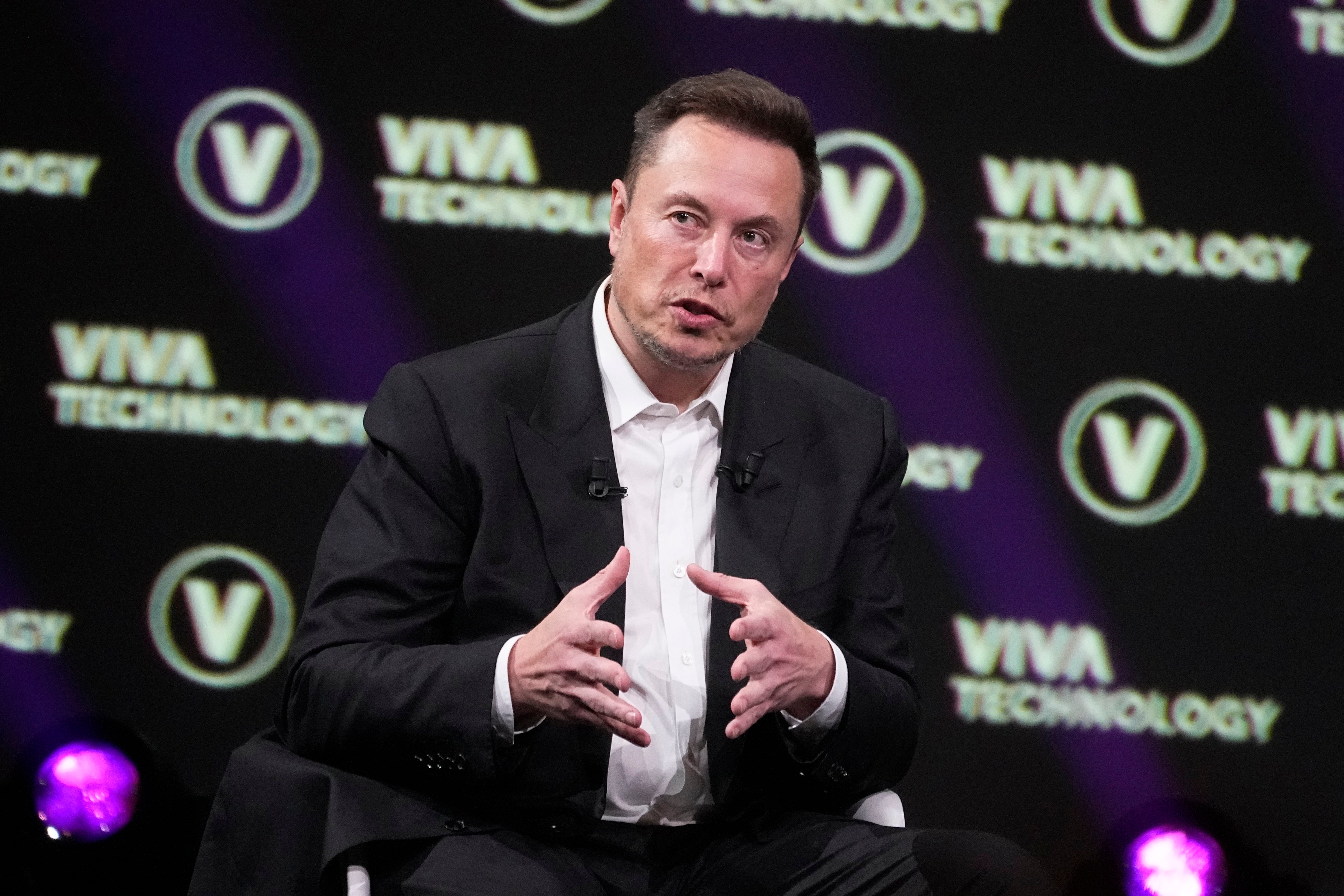Elon Musk’s ‘F*** you’ attitude may be the death of his empire
The Tesla CEO has already driven advertisers away from his social media platform, writes Chris Blackhurst. But it may not be long before they abandon his other ventures, too


When Elon Musk hosted Saturday Night Live he addressed the elephant in the studio – namely, his personality. “To anyone I’ve offended, I just want to say I reinvented electric cars and I’m sending people to Mars on a rocket ship. Did you think I was also going to be a chill, normal dude?”
That was in 2021. Here we are, two years later, and Musk, owner of X, formerly known as Twitter, has just gone and told advertisers to “go f*** yourself”. He doesn’t mean any old businesses that will pay to sell their wares either, but some of the world’s biggest, mightiest corporations.
He’s aiming at the likes of Apple, IBM and Disney, all of which have deserted the social media platform after Musk was accused of posting his support for an antisemitic conspiracy theory. He did say the post was the “worst and dumbest thing I’ve ever done”.
But hey, this is Elon. He concedes one minute, then lashes out the next. Subsequently, he promoted the “Pizzagate” conspiracy theory, which falsely claims members of the Democratic Party were running a child sex ring out of a Washington DC pizza restaurant. That led to another declared boycott of X, from The Washington Post, owned by Amazon founder Jeff Bezos. That was too much for Musk, who went on the offensive, literally.
Overall, since the Tesla tycoon acquired the network for $44bn (£35bn) in October last year, Twitter/X is thought to have lost more than 60 per cent of its advertisers. Dozens of major brands have paused their campaigns on X. This year it could lose as much as $75m in advertising revenue. The social media firm is also shedding users – latest figures from the Ofcom regulator show a UK adult monthly audience in May of 24 million, versus 26.8 million for the same month last year.
You would think, when faced with all that, Musk would calm down and seek friends. That he would want those branding titans to shore up his sinking network. Not so. Instead, he says he doesn’t need their custom because they’re trying to “blackmail” him with their money.
Rows between publishers (if that’s what X can be called) and advertisers are not new. The New York Post, Fox News, The Spectator – they have all lost advertising sales in the past because of their editorial stances.
This seems different; more existential. As Musk himself says: “What it’s going to do is it’s going to kill the company, and the whole world will know the advertisers killed the company.”
What sets this apart, as well as the sheer volume of withdrawals, is Musk’s character. Musk denounces anyone he perceives as opposing him. The musician Grimes, mother of three of Musk’s children (the existence of the third, Techno Mechanicus, nicknamed Tau, has been kept private until now), even has a term for his fury. She tells Walter Isaacson, Musk’s biographer, it’s his “demon mode” and says it “causes a lot of chaos”.
Grimes goes on to say, though, that this is what you get with Musk – that the tempestuous nature is also responsible for the drive, the genius that enables him to achieve things that others cannot.
There may be a game of sorts being played here. Musk was once desperate to buy Twitter and bid what many considered to be an outlandish sum. In his biography, Walter Isaacson posits that having been bullied at school, Musk wanted to own the playground.
Once he’d looked at Twitter more closely and examined the books, Musk tried to renege. Too late, he was committed to going ahead with the purchase. He was effectively forced to acquire something he no longer desired.
Having moved in, he sacked a raft of employees and, effectively, ever since it’s been on a downward path. It’s all pointing in one direction.
Possibly, he made a mistake with Twitter because he thought it was an easily mastered tech operator. It wasn’t. It was entirely at the mercy of its advertisers, relying upon them for its income. Unfortunately, advertising is based on emotion.
Those brands take themselves and their consumers seriously; they stick to a middle, non-offensive course, and this makes them determinedly “woke”.
Isaacson asks why Musk is so offended by anything he deems politically correct, and Musk replies: “Unless the woke-mind virus, which is fundamentally anti-science, anti-merit and anti-human in general, is stopped, civilisation will never become multiplanetary.”
To that end, he’s intent on exploring space using Space X rockets. It’s joined his roster of innovations: making online secure payments possible via PayPal, pioneering electric cars at Tesla, supplying the internet from his Starlink satellites, boosting the interface of brain and machine with Neuralink, drilling giant tunnels with the Boring Company, and heading into AI behind xAI.
Notably, X is not on the list. It’s a business he bought, that others created. Financially, he may have written X off long ago, when he changed his mind about buying the network. On its own, X will not be the ruin of him. The threat he faces is the hostility he’s engendered spilling over to the rest of his empire. On one level he’s in a hugely powerful position – but that does not make him impregnable. He’s playing with fire: his suppliers could cancel, rather than jeopardise their other relationships. They will not wish to alienate their customers.
Carry on like this, and Musk may soon discover to his cost that the world’s richest person still needs the little people.





Join our commenting forum
Join thought-provoking conversations, follow other Independent readers and see their replies
Comments